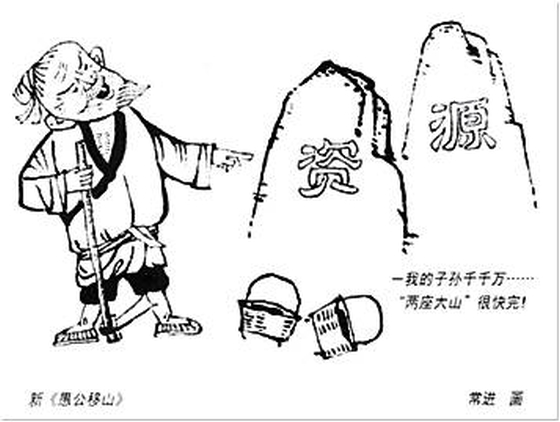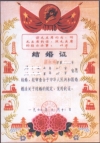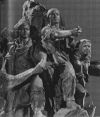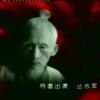Illustration:
ill. 4.17
Author:
Chang Jin (1951–) 常进
Date:
2008
Genre:
comic strip, online caricature
Material:
internet file, black-and-white, original source: internet file colour
Source:
DACHS 2008 The New Foolish Old Man, Heidelberg catalogue entry
Inscription:
新“愚公移山 我的子孙千千万…… “两座大山”很快完!资 源
Keywords:
Mao´s words, Lao sanpian, Three Old Articles, Three Constantly Read Articles, contemporary China, parody, satire, caricature, Foolish Old Man
Online Caricature: The New Foolish Old Man (Xin Yu gong yi shan 新《愚公移山》)

Not only is there ignorance, then, in the use of MaoSpeak, but there is open subversion, too: This 2008 online caricature by painter Chang Jin 常进 (1951–) named The New “Old Man Who Moved Mountains” (新“愚公移山”) completely reverts the Maoist logic: here, moving the mountains, the admirable feat managed by invincible determination and by the help of many sons and grandsons, is no longer a godsend but a negative prospect: the two mountains are named “natural resources” (the binome 资源 ziyuan is split for this purpose: one mountain is 资, the other 源).
The subtitle of the caricature gives voice to the words of the happily naive Foolish Old Man in the picture, who says, “With thousands upon thousands of my descendants, these natural resources will very quickly be removed [i.e., used up]” (我的子孙千千万…… “两座大山”很快完!). The complete reversal of the optimism exuding from the story into pessimism or even fatalism is both comic and subversive. It also shows how important the story remains in cultural memory into the twenty-first century.






































